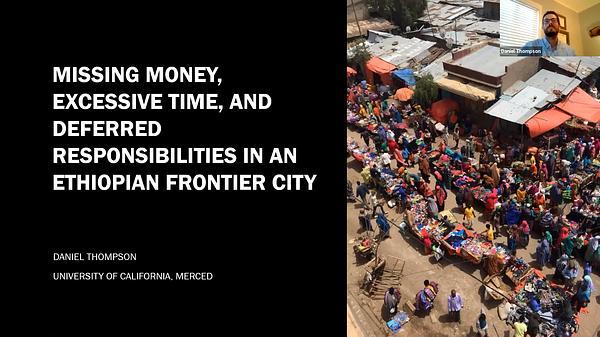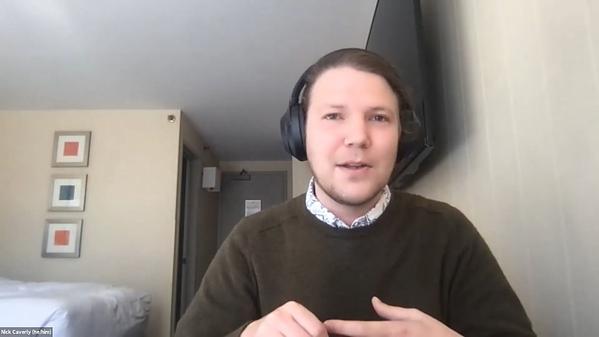Would you like to see your presentation here, made available to a global audience of researchers?
Add your own presentation or have us affordably record your next conference.
keywords:
reciprocity
economic anthropology
urban anthropology
What forms of urban politics come into relief if we foreground cities as sites of excessive relationalities, rather than scarce rights? How might an ethics of mutuality prefigure the demand for rights in urban polities? Since the 1970s, approaches to social and economic justice in urban theory have coalesced around the theme of “the right to the city” (Harvey 2009; 2013; Lefebvre 1996). The problematic of rights brings into view important struggles to organize and protect public space (Low 2000; Peterson 2006), practices of appropriating street and market sites in order to make a living in the face of exclusionary policies (Bayat 2012; Bhimji 2010; Grant and Thompson 2015), and the more general possibilities of civic engagement and protest in cities as key sites in today’s financialized global economy (Leitner and Strunk 2014). Yet even as urban inhabitants mobilize a universalist discourse of “rights,” their understandings and enactments come nested in relations that far exceed abstractions of civil society and law (Chatterjee 2003, Simone 2004), relations that are situated in infrastructures and ecologies that accrue and retrace sedimented histories of belonging, othering, and coloniality (Anand 2017; Caldeira 2000; Escobar 2004; Quijano and Ennis 2000). This panel grapples with two problematics we read in the influential concept of rights to the city. The first problematic is the idea that social justice is universal, rational, and depersonalized•and that in cities, it necessarily involves access to public space and equality of urban residents. In practice, we observe that, even while claiming rights, urban residents claim and control urban space and resources through practices that are personalized, embodied, and networked through caste, ethnic, racial, and gendered geographies (Agard Jones 2013; Jamaal Wright 2020; Lee 2017; Roberts 2016; Sreenath 2019); exceeding conceits of modernist rationality and to demarcate forms of kin and community making that, far from universal, are situated in ecologies that register as Western universalism’s ‘imperial debris’ (Stoller 2013; Tsing 2015). The second problematic, which we understand as intimately related to the first, is the way ontologies of scarcity continue to underpin the notion of urban rights, even as urban scarcities come circumscribed in unruly relationalities and toxicities (Chalfin 2017; Fredricks 2018). In such framings, urban space, citizenship, and resources appear in terms of their lack: scarce resources to be distributed among coherent and pre-constituted publics. The panel invites thinking about other political ontologies emergent in urban spaces (de la Cadena 2014; Massey 2005; Tedesco 2014). It opens dialogue on how problematizing scarcity as a social construct invites other understandings of social justice that account for economies of excess, practices of mutuality, enactments of care and speculation, and other means of distributing resources and claims to resources (such as credit and debt) in cities today.

